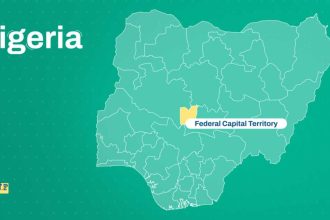The Special Agro-Industrial Processing Zones (SAPZ) under the International Fund for Agricultural Development (IFAD) Component 2 has launched the distribution of toolkits for home gardening to 1,445 households in Kano State.
The initiative, under SAPZ’s Targeted Nutrition Support Programme, anchored the toolkits to strengthen households across eight local government areas of the state.
The initiative, held between 3rd and 6th October 2025, essentially aimed to empower women and vulnerable groups by enabling them to cultivate nutrient-rich vegetables and crops at home to stimulate food security.
Speaking at the launch of the initiative in Kano, the State Project Coordinator (SPC), Aminu Iliyasu, disclosed that 180 women, each from the eight local government areas, benefited from the intervention.
He listed the benefiting local government areas as Kura, Garun-Mallam, Bebeji, Dambatta, Gezawa, Dawakin-Tofa, Bichi, and Bagwai.
According to Iliyasu, the initiative is primarily to improve dietary diversity and ensure continuous access to fresh, nutrient-rich foods by enabling households, particularly women, to grow vegetables and small-scale crops within their homes.
The SAPZ Coordinator emphasised that beneficiaries are provided with access to appropriate gardening implements, such as gardening tools and inputs to enable families to cultivate a variety of vegetables and small-scale crops suited to their local environment.
He added that it would help in lowering the food expenses of households, selling surplus produce for additional income, and building self-sufficiency over time. This contributes to greater economic stability and reduces vulnerability to external shocks such as price fluctuations and food shortages.
“It also aims at providing these basic resources so that households with limited prior farming experience can participate fully in this initiative.
“The initiative will help empower families to grow their own fresh produce, thereby enhancing dietary diversity and reducing dependence on external food sources.
“It will address micronutrient deficiencies and malnutrition, particularly among children, pregnant women, and other vulnerable groups within households.
“To lower the food expenses of households, sell surplus produce for additional income, and build self-sufficiency over time contributes to greater economic stability and reduces vulnerability to external shocks such as price fluctuations and food shortages.”
At the end, the SAPZ Coordinator pointed out that the initiative is expected to increase household production of nutrient-dense vegetables, which contributes to reducing levels of malnutrition, especially among children under five, pregnant, and lactating mothers.
“It is expected that the programme would help improve household food security and resilience against economic shocks, empower women and youth through ownership and management of home gardens, strengthen community engagement and ownership of nutrition-sensitive agricultural interventions, and support local suppliers while stimulating local economic activities through procurement of materials,” Iliyasu explained.
In his remarks, the Kano State Commissioner for Agriculture and Natural Resources, Dr Danjuma Mahmoud, described the initiative as a bold vision of a Nigeria “where agriculture is not merely about subsistence, but about empowerment; not merely about producing food, but about nourishing people, creating livelihoods, and transforming communities.”
According to Mahmoud, represented by the ministry’s Permanent Secretary, Bashir Sanusi, the SAPZ initiative embodies a transformative vision and seeks to reposition the agricultural sector as a true engine of inclusive growth, improved nutrition, and rural development.
“This flagship programme is being championed through strong collaboration between the Federal Government of Nigeria, the Islamic Development Bank (IsDB), and the International Fund for Agricultural Development (IFAD), in partnership with state governments, the private sector, and our resilient farming communities.
“These interventions are not abstract policy statements; they are designed to address the everyday needs of our people. By focusing on youth and women—those who carry the greatest responsibility for household nutrition and family wellbeing—the programme is laying the foundation for stronger households and healthier futures.
“This effort is also in perfect alignment with the vision and commitment of the present administration of His Excellency, Alhaji Abba Kabir Yusuf, to strengthen agriculture as a driver of empowerment and prosperity.
“Under his leadership, the government has introduced bold programmes such as the provision of cattle, goats, and sheep to women and youth, including graduates of our School of Agriculture; the deployment of massive agricultural mechanisation equipment—tractors, combine harvesters, and power tillers—to enhance productivity; and the employment of over 1,000 young people as agricultural extension workers to bring knowledge and innovation closer to farmers.
“These measures are clear evidence of a government that sees agriculture not only as an economic sector, but as a pathway to dignity, empowerment, and shared prosperity,” Dr Mahmoud said.


















